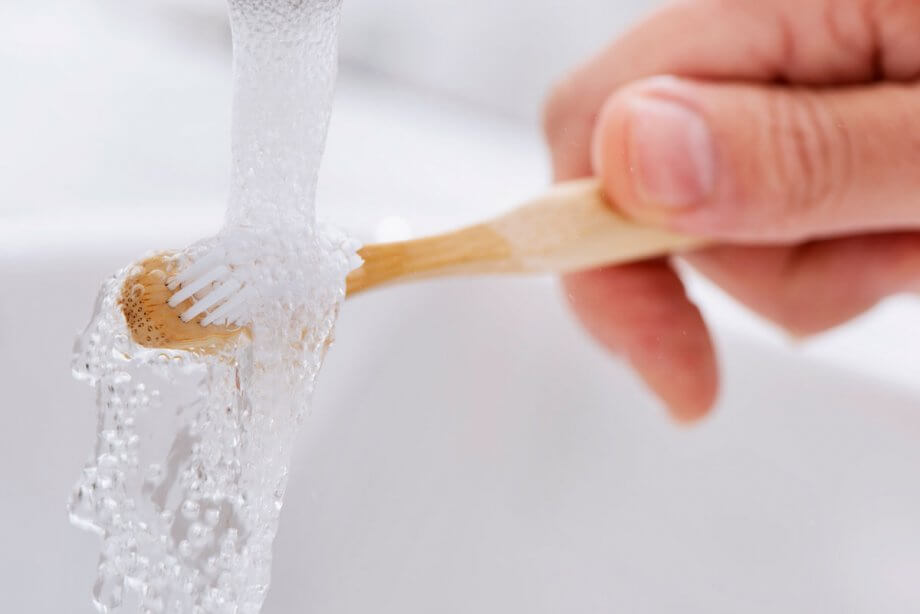When was the last time you replaced your toothbrush? If you’re not sure, you’re not alone—although it’s recommended that toothbrushes be replaced every three to four months, it’s easy to lose track of time or forget to add it to your shopping list. It might seem harmless, but your toothbrush could be making you sick if you’re not replacing it regularly. Here’s how.
Your Toothbrush Can Reinfect You After an Illness
Although it’s common to hear people say that you should change your toothbrush after a cold or flu because you can reinfect yourself, this isn’t actually true—these illnesses are caused by viruses, and once you’ve gotten them, your body will have the immunity needed to prevent reinfection. (That said, you should still replace your toothbrush after a cold or flu because if your brush comes into contact with another family member’s brush, they could pick up the virus.)
You can reinfect yourself with a bacterial infection. This means if you have strep, it’s possible to give it to yourself again if your toothbrush has been colonized by the strep bacteria. Gum disease and other oral infections are also caused by bacteria, which is why you’ll always get a new toothbrush when you come in for a dental cleaning.
Your Bathroom Is Full of Bacteria and Viruses
When it comes to toothbrush storage, most of us are aware that you’re supposed to leave them uncovered and in an open space so they can dry out between brushing sessions; a wet toothbrush is a breeding ground for bacteria.
Unfortunately, this means most toothbrushes are sitting in cups or toothbrush holders on sinks, and many of these sinks are close to toilets. Don’t close your toilet seat when you flush? Then every time you use the toilet, fecal coliforms are sprayed into the air. Toilet spray can spread noroviruses, which cause serious gastrointestinal illness, so it’s a good idea to store your toothbrush as far away from the toilet as possible or even in another room altogether.
Your Toothbrush Is Almost Impossible to Keep Clean
While it’s recommended that you rinse your toothbrush well after brushing your teeth, this really isn’t enough to remove all of the microorganisms on it. Are your bristles frayed? This makes it easier for bacteria to collect. Is there buildup on the handle of your brush or where the bristles are attached to the toothbrush head? This can also harbor bacteria. The humidity in a bathroom doesn’t help either—the longer it takes for your toothbrush to dry after you’ve brushed, the more bacteria can multiply.
Best Practices for Toothbrush Care
The American Dental Association has several tips for reducing the risk of getting sick from your toothbrush:
- Never share your toothbrush with someone else.
- Rinse your brush thoroughly after using it to remove all traces of toothpaste and food debris.
- Store toothbrushes upright and allow them to air dry between uses.
- Replace your toothbrush every three to four months or whenever you notice the bristles are matted or frayed.
Schedule an Appointment at Metrowest Prosthodontics
If you’re due for a dental cleaning or have other concerns about your oral health, contact us today at 508-620-6622 to schedule an appointment with one of our doctors.

